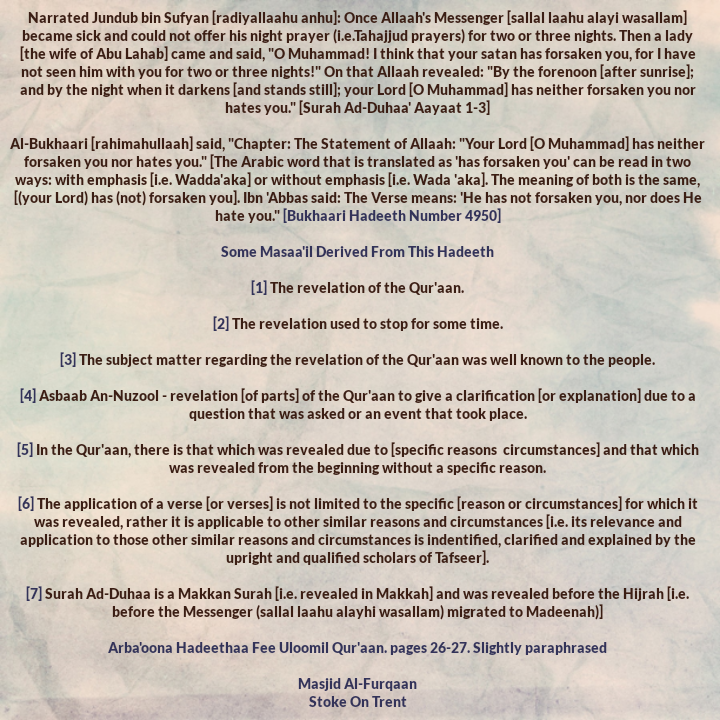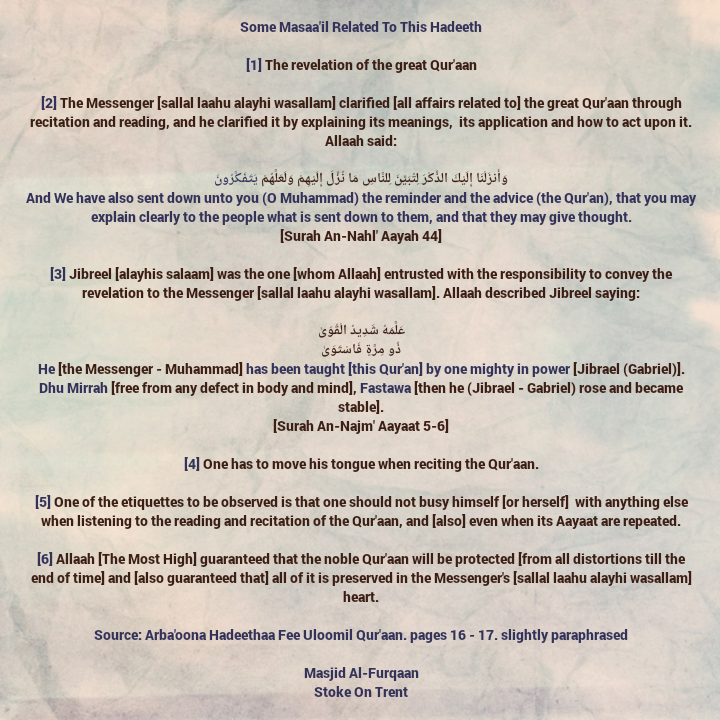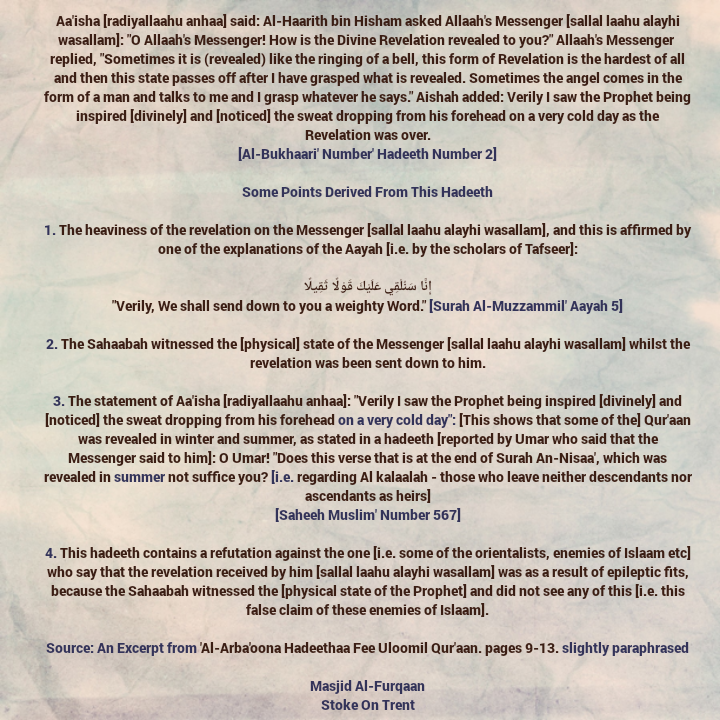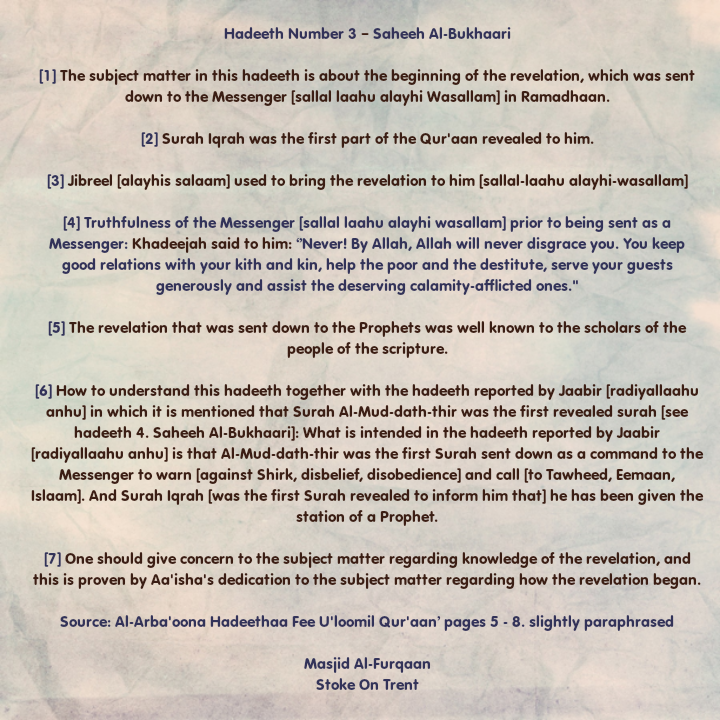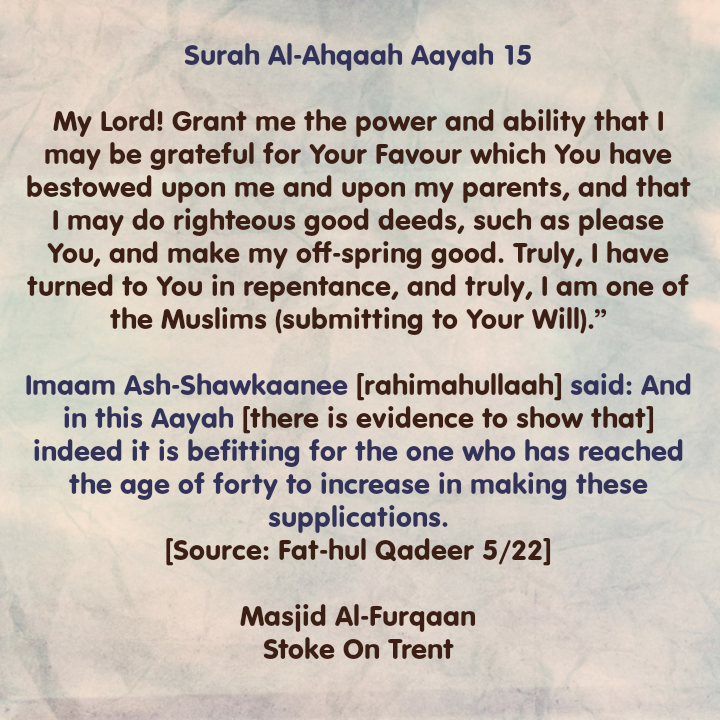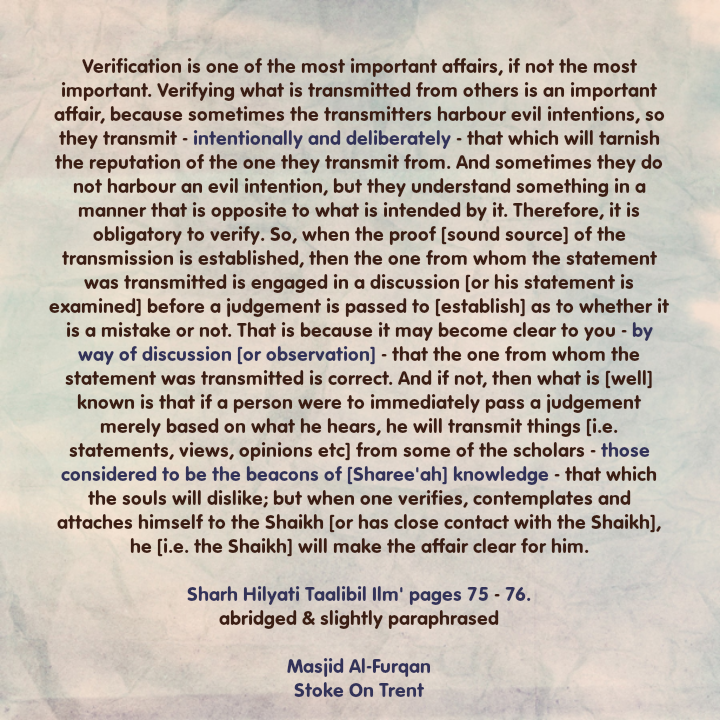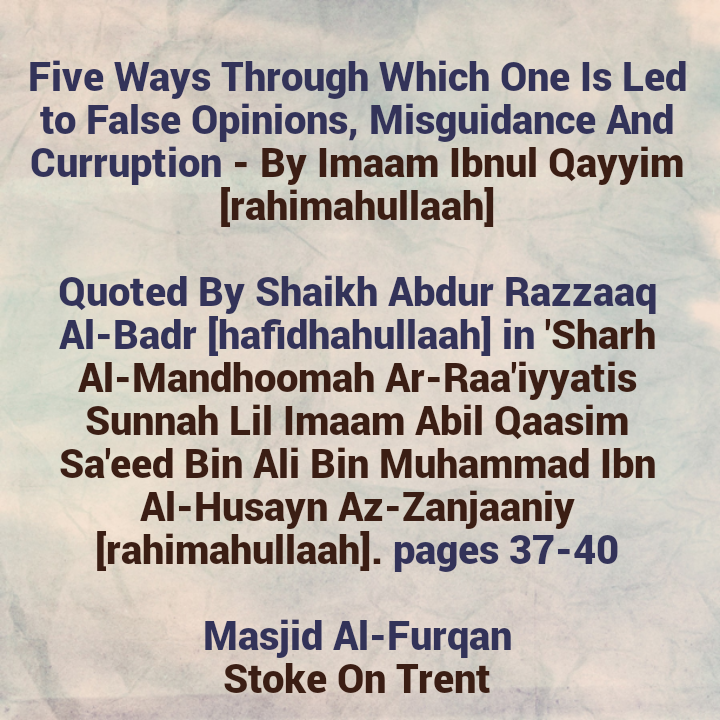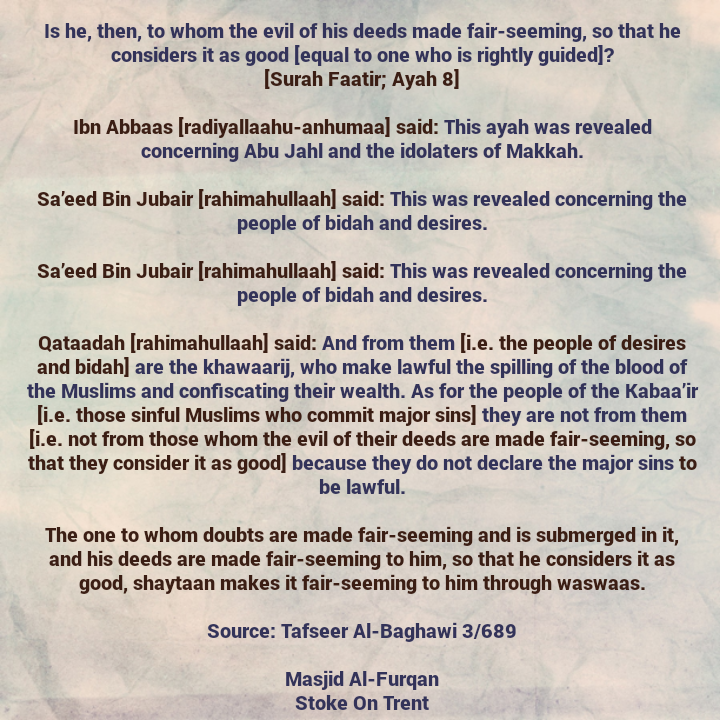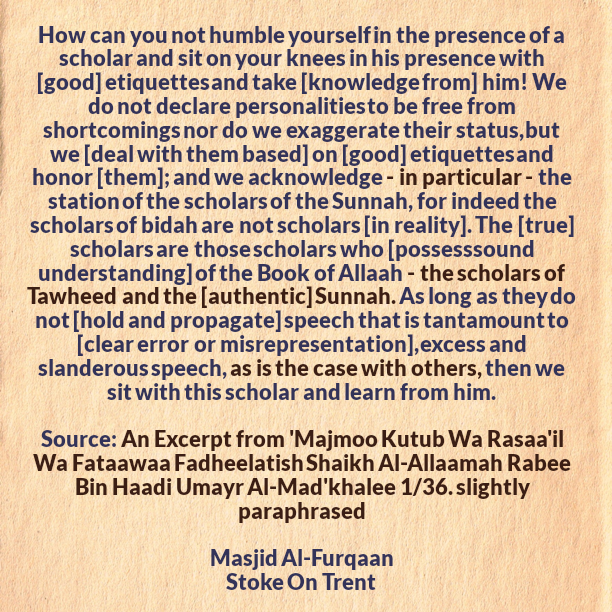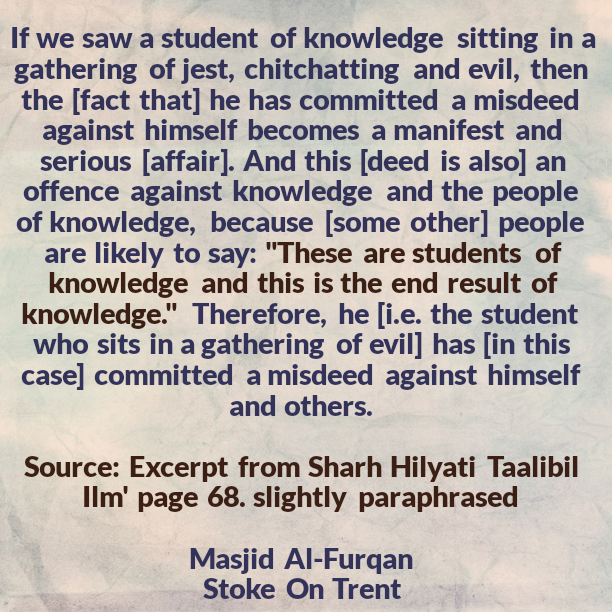[4] Series: Ahaadeeth Related to Uloom Al-Qur’aan – [A Hadeeth Narrated By Jundub Bin Sufyaan Regarding The Revelation of Aayaat 1 – 3′ Surah Ad-Duhaa]
In The Name of Allaah, The Most Merciful, The Bestower of Mercy
Narrated Jundub bin Sufyan [radiyallaahu anhu]: Once Allaah’s Messenger [sallal laahu alayi wasallam] became sick and could not offer his night prayer (i.e.Tahajjud prayers) for two or three nights. Then a lady [the wife of Abu Lahab] came and said, “O Muhammad! I think that your satan has forsaken you, for I have not seen him with you for two or three nights!” On that Allaah revealed: “By the forenoon [after sunrise]; and by the night when it darkens [and stands still]; your Lord [O Muhammad] has neither forsaken you nor hates you.” [Surah Ad-Duhaa’ Aayaat 1-3]
Al-Bukhaari [rahimahullaah] said, “Chapter: The Statement of Allaah: “Your Lord [O Muhammad] has neither forsaken you nor hates you.” [The Arabic word that is translated as ‘has forsaken you’ can be read in two ways: with emphasis [i.e. Wadda’aka] or without emphasis [i.e. Wada ‘aka]. The meaning of both is the same, [(your Lord) has (not) forsaken you]. Ibn ‘Abbas said: The Verse means: ‘He has not forsaken you, nor does He hate you.” [Bukhaari Hadeeth Number 4950]
Some Masaa’il Derived From This Hadeeth
[1] The revelation of the Qur’aan.
[2] The revelation used to stop for some time.
[3] The subject matter regarding the revelation of the Qur’aan was well known to the people.
[4] Asbaab An-Nuzool – revelation [of parts] of the Qur’aan to give a clarification [or explanation] due to a question that was asked or an event that took place.
[5] In the Qur’aan, there is that which was revealed due to [specific reasons circumstances] and that which was revealed from the beginning without a specific reason.
[6] The application of a verse [or verses] is not limited to the specific [reason or circumstances] for which it was revealed, rather it is applicable to other similar reasons and circumstances [i.e. its relevance and application to those other similar reasons and circumstances is indentified, clarified and explained by the upright and qualified scholars of Tafseer].
[7] Surah Ad-Duhaa is a Makkan Surah [i.e. revealed in Makkah] and was revealed before the Hijrah [i.e. before the Messenger (sallal laahu alayhi wasallam) migrated to Madeenah)].
________________________________________
Arba’oona Hadeethaa Fee Uloomil Qur’aan. pages 26-27. By Shaikh Muhammad Baazmool [hafidhahullaah]
Slightly paraphrased
